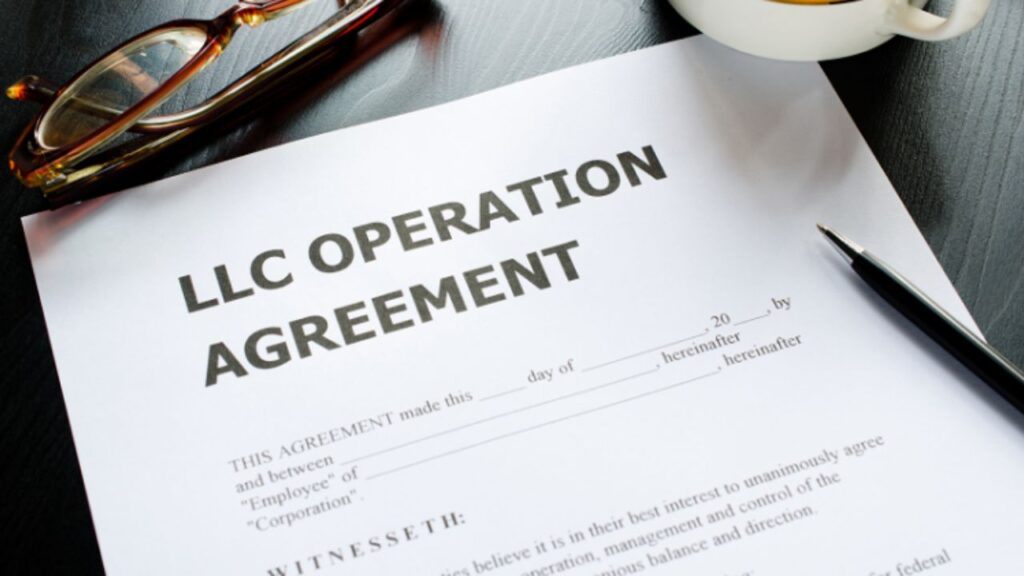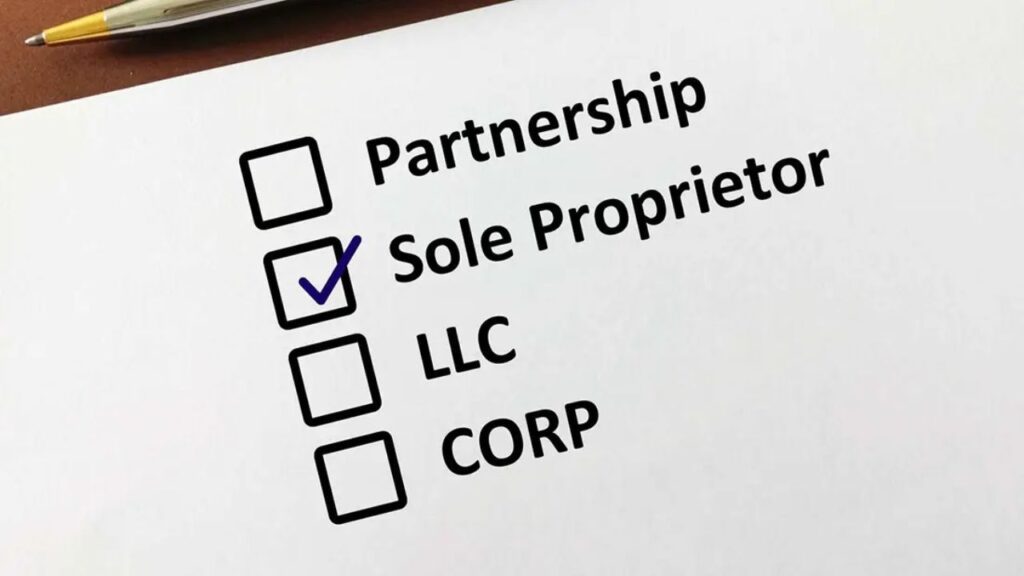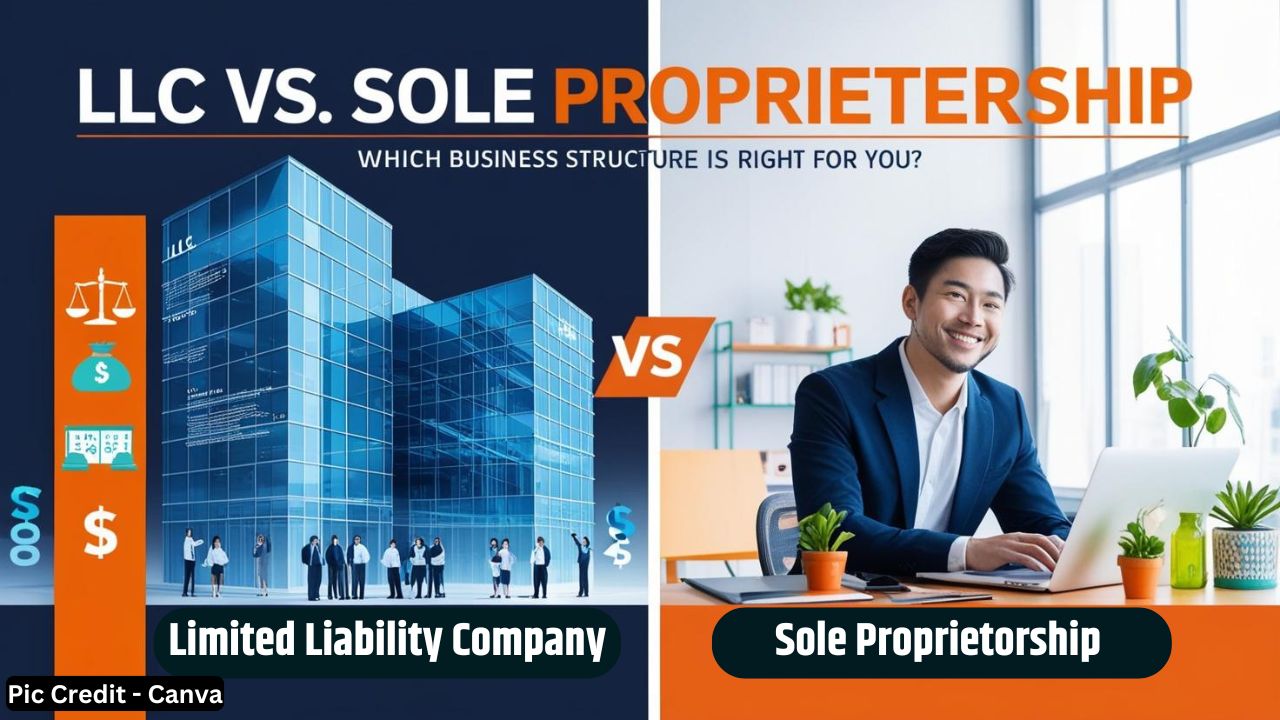LLC vs. Sole Proprietorship : Beginning a new business brings together exciting features along with complex challenges and chances for growth. Beginning your business requires selection of the appropriate structure as one of your first key choices. Your selected business structure shapes your tax requirements besides influencing liability aspects and funding capabilities and business functioning.
Small business owners select Limited Liability Companies (LLCs) and Sole Proprietorships because these entities stand as their preferred choices. The decision between these business types depends on the combination of advantages and constraints that suit your requirements.
The following guide presents detailed analysis about the distinction between LLC structures compared to Sole Proprietorships including information on liability exposure and taxation methods along with management models and initial setup requirements and long-term aspects. The decision-making process will finalise with a firm understanding about which business structure matches your objectives.
Read More : LLC Formation in 2025: Don’t Start a Business Without Reading This LLC Guide!

LLC vs. Sole Proprietorship: Key Differences
A quick overview of the main distinctions exists between LLC and sole proprietorship statuses needs to be examined before proceeding into detailed analysis:
| Feature | LLC (Limited Liability Company) | Sole Proprietorship |
| Legal Structure | Separate legal entity from its owner(s) | Not a separate legal entity |
| Liability Protection | Personal assets are protected from business debts | Owner is personally liable for all business debts |
| Taxation | Can choose taxation as a sole proprietorship, partnership, or corporation | Pass-through taxation (profits taxed as personal income) |
| Management | Can be managed by members or appointed managers | Owned and managed by a single person |
| Paperwork & Compliance | Requires registration, annual filings, and fees | Minimal paperwork, no formal registration required |
| Credibility & Funding | Easier to attract investors and build professional credibility | Harder to secure funding from investors |
| Cost of Formation | $50 – $500 (varies by state) | Free (except for DBA registration, if needed) |
| Business Name Protection | Registered name protected in the state | No name protection unless registered as a DBA |
Now, let’s take a closer look at each business structure.

What is an LLC?
The business structure of Limited Liability Company (LLC) protects its owners’ personal assets through member liability protection. The owners of a business protected by this structure cannot lose their personal assets when facing suits or having debts since their property remains separate from business ownership.
An LLC establishes itself as an independent legal structure separate from member owners thereby protecting their personal resources from business exposures. An LLC provides tax flexibility to members who can select sole proprietorship or partnership or corporation taxation.
Read More : Beyond Ordinary: 10 Hidden Luxury Destinations for Exclusive Travelers
Advantages of an LLC
Limited Personal Liability – Protects personal assets from business debts and lawsuits.
Tax Flexibility – An LLC grants its operators flexibility to choose tax reporting categories that include sole proprietorship and partnership and S Corporation and C Corporation.
Business Credibility – A well-established business reputation attracts clients along with investors to the company in addition to improving its professional standing in the marketplace.
Better Funding Opportunities – Before investing in a sole proprietorship investors usually prefer Limited Liability Companies because they offer better funding opportunities.
Longevity & Growth – An LLC can survive through multiple ownership substitutions without termination of business operations.
Disadvantages of an LLC
Higher Costs – LLCs require state registration fees and annual filings, which vary by state.
More Paperwork – Compared to a sole proprietorship, an LLC involves more documentation and legal compliance.

What is a Sole Proprietorship?
A Sole Proprietorship is the simplest and most common type of business structure. Unlike an LLC, a sole proprietorship is not a separate legal entity from its owner. This means the business and the owner are considered the same, and the owner is personally responsible for all debts, lawsuits, and financial obligations.
Advantages of a Sole Proprietorship
- Easy & Low-Cost Setup – No formal registration is required (except for business licenses).
- Full Control – The owner makes all business decisions without consulting partners.
- Simple Tax Filing – Business income is reported on the owner’s personal tax return.
- Less Paperwork & Compliance – No annual filings or strict legal requirements.
Read More : Term Insurance vs Life Insurance: Key Differences Revealed In 2025!
Disadvantages of a Sole Proprietorship
- Unlimited Personal Liability – The owner is personally responsible for all debts and lawsuits.
- Limited Funding Options – Harder to attract investors or secure bank loans.
- Lower Business Credibility – May be perceived as less professional than an LLC.
- Higher Self-Employment Taxes – Must pay 15.3% in self-employment tax.

Key Differences Between an LLC and a Sole Proprietorship (LLC vs. Sole Proprietorship)
1. Liability Protection
LLC: Owners’ personal assets are protected from business debts and legal claims.
Sole Proprietorship: The owner is personally responsible for all business liabilities.
2. Taxation
LLC: Can be taxed as a sole proprietorship, partnership, or corporation.
Sole Proprietorship: Business profits are taxed as personal income.
3. Business Credibility & Growth Potential
LLC: More professional and scalable, making it easier to attract investors and grow.
Sole Proprietorship: Less formal and more difficult to expand.
4. Ease of Setup & Maintenance
LLC: Requires state registration, annual reports, and fees.
Sole Proprietorship: No formal registration is needed unless filing a DBA (Doing Business As).
5. Banking & Finance
LLC: Requires a separate business bank account to maintain liability protection.
Sole Proprietorship: Personal and business funds can be mixed, though it’s not recommended.
Read More : Omnisend vs Mailchimp: Which Email Marketing Platform is Best for eCommerce?
How to Set Up Each Business Structure
How to Form an LLC
- Choose a Business Name (must include “LLC” or “Limited Liability Company”).
- Register with the State by filing Articles of Organization.
- Create an Operating Agreement (optional but recommended).
- Obtain an EIN (Employer Identification Number) from the IRS.
- Open a Business Bank Account to separate personal and business finances.
- Comply with State Regulations, such as annual filings and fees.
How to Start a Sole Proprietorship
- Choose a Business Name (optional, but you may need to file a DBA).
- Register for a DBA if using a name other than your own.
- Obtain Necessary Licenses & Permits depending on your industry and location.
- Separate Personal & Business Finances by keeping clear records.

LLC vs. Sole Proprietorship : Which Business Structure is Right for You?
| Choose an LLC if | Choose a Sole Proprietorship if |
| You want personal liability protection. | You want a simple and low-cost business setup. |
| You plan to seek investors or business loans. | You are running a low-risk business (e.g., freelancing, consulting). |
| You want more tax flexibility and growth potential. | You don’t plan to hire employees or seek investors. |
| Your business involves risk (e.g., selling products, hiring employees). | You prefer to avoid paperwork and formalities. |
Read More : Omnisend Reviews : The Dark Side of Email Marketing and How Omnisend Can Help
Choosing between an LLC and a Sole Proprietorship (LLC vs. Sole Proprietorship) is a crucial step in starting your business. An LLC provides liability protection, tax flexibility, and credibility, while a sole proprietorship offers simplicity, low startup costs, and complete control.
If your business is low-risk and self-funded, a sole proprietorship may be ideal. However, if you want to protect your personal assets and grow your business, forming an LLC is the better choice.




One thought on “LLC vs. Sole Proprietorship: Which Business Structure is Right for You?”